Korea
-
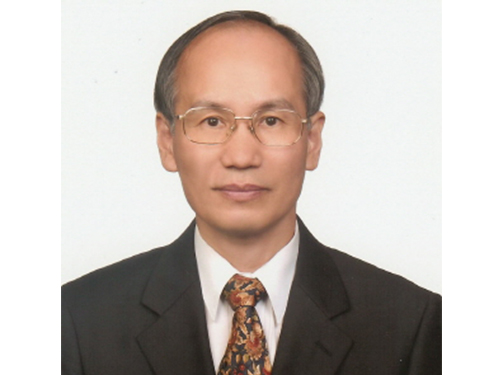 Professor Dan Keun Sung Endows Scholarship in Honor of His Retirement
Professor Dan Keun Sung in the School of Electrical Engineering contributed a 100 million KRW scholarship fund this month to KAIST to mark his retirement after more than three decades of work.
“As my retirement date comes closer, I have been thinking about what I could do for the school. I wanted to leave something behind, even though it’s small, for my lifelong school and students. I am hoping that this scholarship fund will benefit the members of KAIST.”
This isn’t his first time making a donation to KAIST. In 2013, Professor Sung donated ten million KRW, which was his cash prize from the 9th Haedong Academic Award of The Korean Institute of Communications and Information Sciences (KICS). At that time, Professor Sung had the chance to create a scholarship fund in his name; however, he wanted to highlight that the scholarship fund was for ‘someone,’ not created by ‘someone.’ In that sense, his scholarship fund was created with no name to benefit students in the School of Electrical Engineering. His colleagues and students supported his idea. Professor Seonghwan Cho, students, and alumni also participated in fund raising efforts, which reached 55 million KRW in total.
Professor Sung emphasized, “Donations should always be remembered, no matter how small they are.” He then explained his purpose for creating the scholarship fund by saying, “Fundraising can be truly meaningful to contributors, knowing that their money is going to supporting the school and students.”
Professor Sung, a fellow of the Institute of Electrical and Electronics Engineers (IEEE) Communication Society, started his post at KAIST in 1986. For the past 30 years, he has devoted himself to fostering young scholars and studying in the area of information and communication. He also participated in developing technologies for the resource management of various future cellular components, such as satellites, switchboards, and signaling networks.
2017.08.11 View 10615
Professor Dan Keun Sung Endows Scholarship in Honor of His Retirement
Professor Dan Keun Sung in the School of Electrical Engineering contributed a 100 million KRW scholarship fund this month to KAIST to mark his retirement after more than three decades of work.
“As my retirement date comes closer, I have been thinking about what I could do for the school. I wanted to leave something behind, even though it’s small, for my lifelong school and students. I am hoping that this scholarship fund will benefit the members of KAIST.”
This isn’t his first time making a donation to KAIST. In 2013, Professor Sung donated ten million KRW, which was his cash prize from the 9th Haedong Academic Award of The Korean Institute of Communications and Information Sciences (KICS). At that time, Professor Sung had the chance to create a scholarship fund in his name; however, he wanted to highlight that the scholarship fund was for ‘someone,’ not created by ‘someone.’ In that sense, his scholarship fund was created with no name to benefit students in the School of Electrical Engineering. His colleagues and students supported his idea. Professor Seonghwan Cho, students, and alumni also participated in fund raising efforts, which reached 55 million KRW in total.
Professor Sung emphasized, “Donations should always be remembered, no matter how small they are.” He then explained his purpose for creating the scholarship fund by saying, “Fundraising can be truly meaningful to contributors, knowing that their money is going to supporting the school and students.”
Professor Sung, a fellow of the Institute of Electrical and Electronics Engineers (IEEE) Communication Society, started his post at KAIST in 1986. For the past 30 years, he has devoted himself to fostering young scholars and studying in the area of information and communication. He also participated in developing technologies for the resource management of various future cellular components, such as satellites, switchboards, and signaling networks.
2017.08.11 View 10615 -
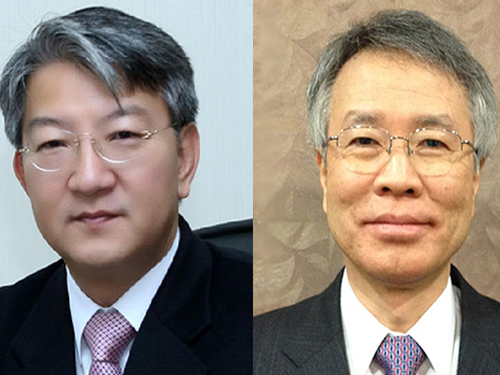 KAIST Professors Sweep the Best Science and Technology Award
(Distinguished Professors Sang Yup Lee (left) and Kyu-Young Whang)
Distinguished Professors Sang Yup Lee from the Department of Chemical and Biomolecular Engineering and Kyu-Young Whang of the College of Computing were selected as the winners of the "2017 Korea Best Science and Technology Award" by the Ministry of Science, ICT and Future Planning (MSIP) and the Korea Federation of Science and Technology Societies.
The award, which was established in 2003, is the highest honor bestowed to the two most outstanding scientists in Korea annually. This is the first time that KAIST faculty members have swept the award since its founding.
Distinguished Professor Lee is renowned for his pioneering studies of system metabolic engineering, which produces useful chemicals by utilizing microorganisms. Professor Lee has developed a number of globally-recognized original technologies such as gasoline production using micro-organisms, a bio-butanol production process, microbes for producing nylon and plastic raw materials, and making native-like spider silk produced in metabolically engineering bacterium which is stronger than steel but finer than human hair.
System metabolism engineering was also selected as one of the top 10 promising technologies in the world in 2016 by the World Economic Forum. Selected as one of the world’s top 20 applied bioscientists in 2014 by Nature Biotechnology, he has many ‘first’ titles in his academic and research careers. He was the first Asian to win the James Bailey Award (2016) and Marvin Johnson Award (2012), the first Korean elected to both the US National Academy of Science (NAS) and the National Academy of Engineering (NAE) this year. He is the dean of KAIST institutes, a multi and interdisciplinary research institute at KAIST. He serves as co-chair of the Global Council on Biotechnology and as a member of the Global Future Council on the Fourth Industrial Revolution at the World Economic Forum.
Distinguished Professor Whang, the first recipient in the field of computer science in this award, has been recognized for his lifetime achievement and contributions to the development of the software industry and the spreading of information culture. He has taken a pioneering role in presenting novel theories and innovative technologies in the field of database systems such as probabilistic aggregation, multidimensional indexing, query, and database and information retrieval. The Odysseus database management system Professor Hwang developed has been applied in many diverse fields of industry, while promoting the domestic software industry and its technical independence.
Professor Hwang is a fellow at the American Computer Society (ACM) and life fellow at IEEE. Professor Whang received the ACM SIGMOD Contributions Award in 2014 for his work promoting database research worldwide, the PAKDD Distinguished Contributions Award in 2014, and the DASFAA Outstanding Contributions Award in 2011 for his contributions to database and data mining research in the Asia-Pacific region. He is also the recipient of the prestigious Korea (presidential) Engineering Award in 2012.
2017.07.03 View 12689
KAIST Professors Sweep the Best Science and Technology Award
(Distinguished Professors Sang Yup Lee (left) and Kyu-Young Whang)
Distinguished Professors Sang Yup Lee from the Department of Chemical and Biomolecular Engineering and Kyu-Young Whang of the College of Computing were selected as the winners of the "2017 Korea Best Science and Technology Award" by the Ministry of Science, ICT and Future Planning (MSIP) and the Korea Federation of Science and Technology Societies.
The award, which was established in 2003, is the highest honor bestowed to the two most outstanding scientists in Korea annually. This is the first time that KAIST faculty members have swept the award since its founding.
Distinguished Professor Lee is renowned for his pioneering studies of system metabolic engineering, which produces useful chemicals by utilizing microorganisms. Professor Lee has developed a number of globally-recognized original technologies such as gasoline production using micro-organisms, a bio-butanol production process, microbes for producing nylon and plastic raw materials, and making native-like spider silk produced in metabolically engineering bacterium which is stronger than steel but finer than human hair.
System metabolism engineering was also selected as one of the top 10 promising technologies in the world in 2016 by the World Economic Forum. Selected as one of the world’s top 20 applied bioscientists in 2014 by Nature Biotechnology, he has many ‘first’ titles in his academic and research careers. He was the first Asian to win the James Bailey Award (2016) and Marvin Johnson Award (2012), the first Korean elected to both the US National Academy of Science (NAS) and the National Academy of Engineering (NAE) this year. He is the dean of KAIST institutes, a multi and interdisciplinary research institute at KAIST. He serves as co-chair of the Global Council on Biotechnology and as a member of the Global Future Council on the Fourth Industrial Revolution at the World Economic Forum.
Distinguished Professor Whang, the first recipient in the field of computer science in this award, has been recognized for his lifetime achievement and contributions to the development of the software industry and the spreading of information culture. He has taken a pioneering role in presenting novel theories and innovative technologies in the field of database systems such as probabilistic aggregation, multidimensional indexing, query, and database and information retrieval. The Odysseus database management system Professor Hwang developed has been applied in many diverse fields of industry, while promoting the domestic software industry and its technical independence.
Professor Hwang is a fellow at the American Computer Society (ACM) and life fellow at IEEE. Professor Whang received the ACM SIGMOD Contributions Award in 2014 for his work promoting database research worldwide, the PAKDD Distinguished Contributions Award in 2014, and the DASFAA Outstanding Contributions Award in 2011 for his contributions to database and data mining research in the Asia-Pacific region. He is also the recipient of the prestigious Korea (presidential) Engineering Award in 2012.
2017.07.03 View 12689 -
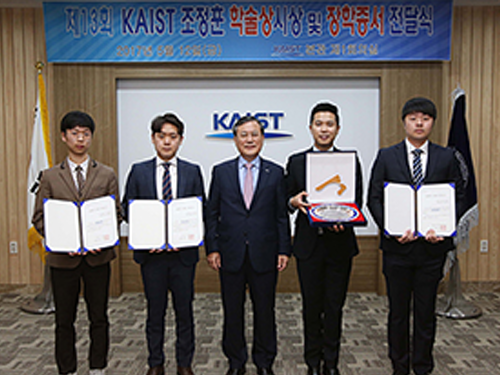 Dr. Zi Jing Wong Named 2017 Jeong Hun Cho Awardee
(Photo caption: The 2017 Jeong Hun Cho Scholarship recipients pose with President Shin (left photo) and Dr. Zi Jing Wong, the recipient of the 2017 Jeong Hun Cho Award)
Dr. Zi Jing Wong, a postdoctoral scholar at the University of California, Berkeley was named the 2017 recipient of the Jeong Hun Cho Award. The award recognizes outstanding young scientists in the field of aerospace engineering annually. The recipient receives a 20 million KRW prize.
The Award Committee said that Dr. Wong who earned his MS at KAIST Department of Aerospace Engineering is a rising scholar in the fields of optic meta materials, photonics, imaging, among others. He has published five papers on the realization of a zero refractive index and the control of a refractive index, as well as the realization of a 3D invisibility cloak in Science and Nature Photonics in 2014 and 2015. Dr. Wong also swept the best paper awards from many international academic societies including the US Materials Research Society, IEEE, SPIE, and Metamaterials Congress in 2015. He finished his Ph.D. at the University of California, Berkeley.
The Award Committee also named three recipients of the Jeong Hun Cho Scholarship: Ph.D. candidate Hyon-Tak Kim of the Department of Aerospace Engineering at KAIST, Ph.D. candidate Ho-Song Park from the Department of Mechanical Engineering at Korea University, and Hyong-Jin Choi of Kongju National University High School.
The award was endowed by the family of the late Ph.D. candidate Jeong Hun Cho who died in a rocket lab accident in the Department of Aerospace Engineering in 2003. Cho was posthumously conferred an honorary doctorate degree.
In memory of Cho, his father established the ‘Jeong Hun Cho Award and Scholarship.’ The scholarship annually selects three young scholars from Cho’s alma maters of KAIST, Korea University, and Kongju National University High School.
2017.05.12 View 13028
Dr. Zi Jing Wong Named 2017 Jeong Hun Cho Awardee
(Photo caption: The 2017 Jeong Hun Cho Scholarship recipients pose with President Shin (left photo) and Dr. Zi Jing Wong, the recipient of the 2017 Jeong Hun Cho Award)
Dr. Zi Jing Wong, a postdoctoral scholar at the University of California, Berkeley was named the 2017 recipient of the Jeong Hun Cho Award. The award recognizes outstanding young scientists in the field of aerospace engineering annually. The recipient receives a 20 million KRW prize.
The Award Committee said that Dr. Wong who earned his MS at KAIST Department of Aerospace Engineering is a rising scholar in the fields of optic meta materials, photonics, imaging, among others. He has published five papers on the realization of a zero refractive index and the control of a refractive index, as well as the realization of a 3D invisibility cloak in Science and Nature Photonics in 2014 and 2015. Dr. Wong also swept the best paper awards from many international academic societies including the US Materials Research Society, IEEE, SPIE, and Metamaterials Congress in 2015. He finished his Ph.D. at the University of California, Berkeley.
The Award Committee also named three recipients of the Jeong Hun Cho Scholarship: Ph.D. candidate Hyon-Tak Kim of the Department of Aerospace Engineering at KAIST, Ph.D. candidate Ho-Song Park from the Department of Mechanical Engineering at Korea University, and Hyong-Jin Choi of Kongju National University High School.
The award was endowed by the family of the late Ph.D. candidate Jeong Hun Cho who died in a rocket lab accident in the Department of Aerospace Engineering in 2003. Cho was posthumously conferred an honorary doctorate degree.
In memory of Cho, his father established the ‘Jeong Hun Cho Award and Scholarship.’ The scholarship annually selects three young scholars from Cho’s alma maters of KAIST, Korea University, and Kongju National University High School.
2017.05.12 View 13028 -
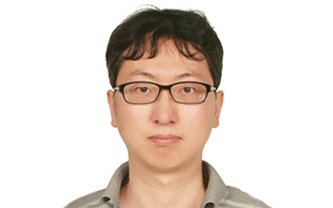 Professor Lee Recognized by the KMS as Best Paper Awardee
Professor Ji Oon Lee of the Department of Mathematical Sciences was selected as the 2017 Best Paper Awardee by the Korean Mathematical Society. The award will be presented during the KMS spring meeting on April 29. Dr. Lee is being honored for proving a necessary and sufficient condition for the Tracy-Wisdom law of Wigner matrices. In a paper titled ‘A Necessary and Sufficient Condition for Edge Universality of Wigner Matrices,’ he proposed a solution for one of the many unanswered problems in the field of random matrix theory that have existed for decades. The paper, co-authored with Professor Jun Yin at the University of Wisconsin – Madison, was published in the Duke Mathematical Journal in 2014. Professor Lee joined KAIST in 2010 after finishing his Ph.D. at Harvard University. He was named a ‘POSCI Science Fellow’ and received the ‘Young Scientist Award’ from the KMS in 2014.
2017.04.27 View 10929
Professor Lee Recognized by the KMS as Best Paper Awardee
Professor Ji Oon Lee of the Department of Mathematical Sciences was selected as the 2017 Best Paper Awardee by the Korean Mathematical Society. The award will be presented during the KMS spring meeting on April 29. Dr. Lee is being honored for proving a necessary and sufficient condition for the Tracy-Wisdom law of Wigner matrices. In a paper titled ‘A Necessary and Sufficient Condition for Edge Universality of Wigner Matrices,’ he proposed a solution for one of the many unanswered problems in the field of random matrix theory that have existed for decades. The paper, co-authored with Professor Jun Yin at the University of Wisconsin – Madison, was published in the Duke Mathematical Journal in 2014. Professor Lee joined KAIST in 2010 after finishing his Ph.D. at Harvard University. He was named a ‘POSCI Science Fellow’ and received the ‘Young Scientist Award’ from the KMS in 2014.
2017.04.27 View 10929 -
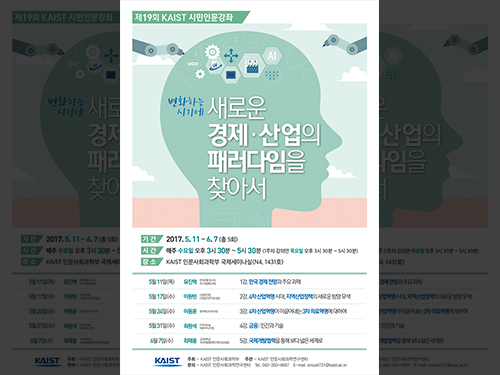 Seeking a New Economic and Industrial Paradigm
The School of Humanities & Social Science will offer the open lecture course titled ‘Seeking a New Economic and Industrial Paradigm’ from May11 to June 7. This is part of a quarterly lecture series run by the school and open to the public.
The open lecture is designed to provide opportunities for the public to identify future challenges and opportunities for Korea’s economy and industry. Experts in macroeconomics, finance, and global collaboration will provide glimpses of new directions for each sector as well as megatrends of emerging technologies on the heels of the 4th Industrial Revolution.
Jin Hyuk Yoo from the Bank of Korea will speak on the ‘Outlook and Challenges of the Korean Economy.’ He will identify the current economic situation and explain how to build on sustainable long-term economic growth in the opening course.
Won-Bin Lee of the Korea Institute for Industrial Economics & Trade will present on the ‘New Industrial Policy in the Era of the Fourth Industrial Revolution.’ His lecture will focus on fostering the local industry and creating its own ecosystem for furthering regional industries.
Dong-Hoon Lee of Donga ST will speak on the implications that the Fourth Industrial Revolution will bring about in the medical industry. Won-Suk Choi of FnPricing will introduce the FN business model, presenting the risks and benefits of fintech in his lecture ‘Finance: Human and Technology.’
Jae-Hong Choi of the Institute of International Development Cooperation at Korea University will give a talk titled ‘Toward the World through Global Cooperation.’ He will present on the history of Korea’s global cooperation initiatives and the role of KOICA, introducing its emerging economic and industrial cooperation model.
Professor Jeounghoon Kim, who is responsible for the public lecture program, said, “Korea now faces very diverse social economic and industrial challenges and we seem to be lost while searching for a solution. The public will have an opportunity to understand the current economic situation and its industrial implications.”
For registration and more info, please visit http://hss.kaist.ac.kr.
2017.04.26 View 9616
Seeking a New Economic and Industrial Paradigm
The School of Humanities & Social Science will offer the open lecture course titled ‘Seeking a New Economic and Industrial Paradigm’ from May11 to June 7. This is part of a quarterly lecture series run by the school and open to the public.
The open lecture is designed to provide opportunities for the public to identify future challenges and opportunities for Korea’s economy and industry. Experts in macroeconomics, finance, and global collaboration will provide glimpses of new directions for each sector as well as megatrends of emerging technologies on the heels of the 4th Industrial Revolution.
Jin Hyuk Yoo from the Bank of Korea will speak on the ‘Outlook and Challenges of the Korean Economy.’ He will identify the current economic situation and explain how to build on sustainable long-term economic growth in the opening course.
Won-Bin Lee of the Korea Institute for Industrial Economics & Trade will present on the ‘New Industrial Policy in the Era of the Fourth Industrial Revolution.’ His lecture will focus on fostering the local industry and creating its own ecosystem for furthering regional industries.
Dong-Hoon Lee of Donga ST will speak on the implications that the Fourth Industrial Revolution will bring about in the medical industry. Won-Suk Choi of FnPricing will introduce the FN business model, presenting the risks and benefits of fintech in his lecture ‘Finance: Human and Technology.’
Jae-Hong Choi of the Institute of International Development Cooperation at Korea University will give a talk titled ‘Toward the World through Global Cooperation.’ He will present on the history of Korea’s global cooperation initiatives and the role of KOICA, introducing its emerging economic and industrial cooperation model.
Professor Jeounghoon Kim, who is responsible for the public lecture program, said, “Korea now faces very diverse social economic and industrial challenges and we seem to be lost while searching for a solution. The public will have an opportunity to understand the current economic situation and its industrial implications.”
For registration and more info, please visit http://hss.kaist.ac.kr.
2017.04.26 View 9616 -
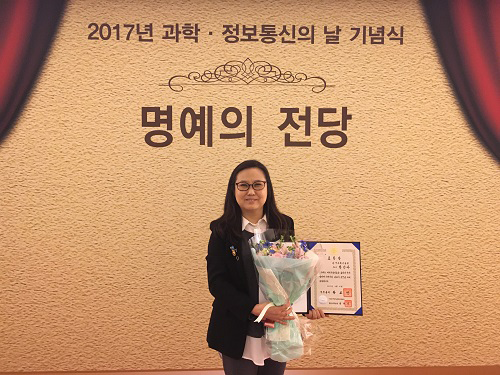 Professor Jinah Park Received the Prime Minister's Award
Professor Jinah Park of the School of Computing received the Prime Minister’s Citation Ribbon on April 21 at a ceremony celebrating the Day of Science and ICT. The awardee was selected by the Ministry of Science, ICT and Future Planning and Korea Communications Commission.
Professor Park was recognized for her convergence R&D of a VR simulator for dental treatment with haptic feedback, in addition to her research on understanding 3D interaction behavior in VR environments. Her major academic contributions are in the field of medical imaging, where she developed a computational technique to analyze cardiac motion from tagging data.
Professor Park said she was very pleased to see her twenty-plus years of research on ways to converge computing into medical areas finally bear fruit. She also thanked her colleagues and students in her Computer Graphics and CGV Research Lab for working together to make this achievement possible.
2017.04.26 View 11400
Professor Jinah Park Received the Prime Minister's Award
Professor Jinah Park of the School of Computing received the Prime Minister’s Citation Ribbon on April 21 at a ceremony celebrating the Day of Science and ICT. The awardee was selected by the Ministry of Science, ICT and Future Planning and Korea Communications Commission.
Professor Park was recognized for her convergence R&D of a VR simulator for dental treatment with haptic feedback, in addition to her research on understanding 3D interaction behavior in VR environments. Her major academic contributions are in the field of medical imaging, where she developed a computational technique to analyze cardiac motion from tagging data.
Professor Park said she was very pleased to see her twenty-plus years of research on ways to converge computing into medical areas finally bear fruit. She also thanked her colleagues and students in her Computer Graphics and CGV Research Lab for working together to make this achievement possible.
2017.04.26 View 11400 -
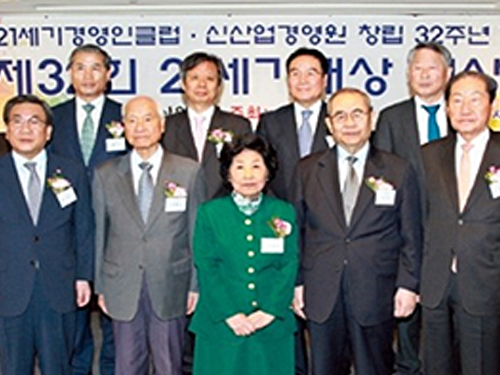 Professor Duck-Joo Lee Awarded the 21st Century Grand Prize
Professor Duck-Joo Lee of the Department of Aerospace Engineering was awarded the 21st Century Grand Prize in the field of technology development by the New Industry Management Academy and the 21st Leaders Club on April 13.
Professor Lee was honored in recognition of his contribution to the helicopter industry. He played a part in domestic helicopter development projects including the KUH-1 Surion (Korean Attack Helicopter), a twin-engine, transport utility helicopter as well as LAH (Light Armed Helicopter) and LCH (Light Civil Helicopter) projects.
Since joining KAIST in 1988, Professor Lee supervised more than 26 PhDs and 27 MSs. He was responsible for hosting the 1st Asian-Australian Rotorcraft Forum and Exhibition and currently serves as vice president of the American Helicopter Society and the Korea Drone Industry Promotion Association. He also participated in open online courses on K-MOOC and Coursera.
(Caption: Professor Lee (second from left in the first row) poses after receiving the award.)
2017.04.26 View 9073
Professor Duck-Joo Lee Awarded the 21st Century Grand Prize
Professor Duck-Joo Lee of the Department of Aerospace Engineering was awarded the 21st Century Grand Prize in the field of technology development by the New Industry Management Academy and the 21st Leaders Club on April 13.
Professor Lee was honored in recognition of his contribution to the helicopter industry. He played a part in domestic helicopter development projects including the KUH-1 Surion (Korean Attack Helicopter), a twin-engine, transport utility helicopter as well as LAH (Light Armed Helicopter) and LCH (Light Civil Helicopter) projects.
Since joining KAIST in 1988, Professor Lee supervised more than 26 PhDs and 27 MSs. He was responsible for hosting the 1st Asian-Australian Rotorcraft Forum and Exhibition and currently serves as vice president of the American Helicopter Society and the Korea Drone Industry Promotion Association. He also participated in open online courses on K-MOOC and Coursera.
(Caption: Professor Lee (second from left in the first row) poses after receiving the award.)
2017.04.26 View 9073 -
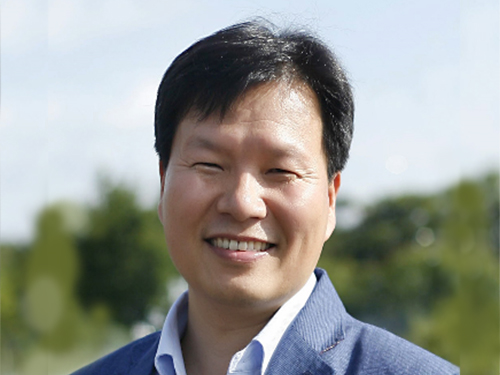 Professor Won Do Heo Receives 'Scientist of the Month Award'
Professor Won Do Heo of the Department of Biological Sciences was selected as the “Scientist of the Month” for April 2017 by the Ministry of Science, ICT and Future Planning and the National Research Foundation of Korea.
Professor Heo was recognized for his suggestion of a new biological research method developing various optogenetics technology which controls cell function by using light. He developed the technology using lasers or LED light, without the need for surgery or drug administration, to identify the cause of diseases related to calcium ions such as Alzheimer’s disease and cancer.
The general technique used in optogenetics, that control cells in the body with light, is the simple activation and deactivation of neurons.
Professor Heo developed a calcium ion channel activation technique (OptoSTIM1) to activate calcium ions in the body using light. He also succeeded in increasing calcium concentrations with light to enhance the memory capacity of mice two-fold.
Using this technology, the desired amount and residing time of calcium ion influx can be controlled by changing light intensity and exposure periods, enabling the function of a single cell or various cells in animal tissue to be controlled remotely.
The experimental results showed that calcium ion influx can be activated in cells that are affected by calcium ions, such as normal cells, cancer cells, and human embryonic stem cells. By controlling calcium concentrations with light, it is possible to control biological phenomena, such as cellular growth, neurotransmitter transmission, muscle contraction, and hormone control.
Professor Heo said, “Until now, it was standard to use optogenetics to activate neurons using channelrhodopsin. The development of this new optogenetic technique using calcium ion channel activation can be applied to various biological studies, as well as become an essential research technique in neurobiology.
The “Scientist of the Month Award” is given every month to one researcher who made significant contributions to the advancement of science and technology with their outstanding research achievement. The awardee will receive prize money of ten million won.
2017.04.07 View 9850
Professor Won Do Heo Receives 'Scientist of the Month Award'
Professor Won Do Heo of the Department of Biological Sciences was selected as the “Scientist of the Month” for April 2017 by the Ministry of Science, ICT and Future Planning and the National Research Foundation of Korea.
Professor Heo was recognized for his suggestion of a new biological research method developing various optogenetics technology which controls cell function by using light. He developed the technology using lasers or LED light, without the need for surgery or drug administration, to identify the cause of diseases related to calcium ions such as Alzheimer’s disease and cancer.
The general technique used in optogenetics, that control cells in the body with light, is the simple activation and deactivation of neurons.
Professor Heo developed a calcium ion channel activation technique (OptoSTIM1) to activate calcium ions in the body using light. He also succeeded in increasing calcium concentrations with light to enhance the memory capacity of mice two-fold.
Using this technology, the desired amount and residing time of calcium ion influx can be controlled by changing light intensity and exposure periods, enabling the function of a single cell or various cells in animal tissue to be controlled remotely.
The experimental results showed that calcium ion influx can be activated in cells that are affected by calcium ions, such as normal cells, cancer cells, and human embryonic stem cells. By controlling calcium concentrations with light, it is possible to control biological phenomena, such as cellular growth, neurotransmitter transmission, muscle contraction, and hormone control.
Professor Heo said, “Until now, it was standard to use optogenetics to activate neurons using channelrhodopsin. The development of this new optogenetic technique using calcium ion channel activation can be applied to various biological studies, as well as become an essential research technique in neurobiology.
The “Scientist of the Month Award” is given every month to one researcher who made significant contributions to the advancement of science and technology with their outstanding research achievement. The awardee will receive prize money of ten million won.
2017.04.07 View 9850 -
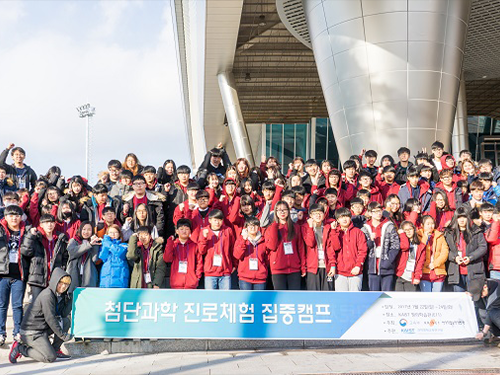 KAIST Intensive Science Camp for Middle-High School Students
The KAIST Global Institute of Talented Education (Director: Dong-Soo Kwon) invited around 90 middle and high school students for an advanced science intensive camp from January 22 to 24.
This camp targeted middle and high school students in community centers or child-care institutions. It aims to increase students’ interest in science and engineering, and assist them with their career paths through programs such as special lectures on science, advanced science projects, and career mentoring.
Participating students were divided into groups of seven or eight with a KAIST student as a mentor to conduct advanced science projects such as VR controller production and robot arm programming. The camp included exploring future career options and science and engineering college admission counselling.
Jiyoung Ryu, Research Professor for the KAIST Global Institute of Talented Education, said, “KAIST started the science and engineering career experience program in 2016 with the Ministry of Education and Korea Research Institute for Vocational Education and Training (KRIVET). So far, 6000 middle and high school students from around the country have participated. The camp is more meaningful since it educates students in social responsibility, in addition to the fields of science and engineering, both of which are missions and goals that KAIST strives for.” She continued to say, “We plan to continue to expand the program in the future.”
The KAIST Global Institute of Talented Education is actively conducting research and projects on national education for talented youth such as policy research concerning gifted education, science and engineering career education, advanced science camps, training for gifted education teachers, and cyber gifted education programs.
2017.02.01 View 9553
KAIST Intensive Science Camp for Middle-High School Students
The KAIST Global Institute of Talented Education (Director: Dong-Soo Kwon) invited around 90 middle and high school students for an advanced science intensive camp from January 22 to 24.
This camp targeted middle and high school students in community centers or child-care institutions. It aims to increase students’ interest in science and engineering, and assist them with their career paths through programs such as special lectures on science, advanced science projects, and career mentoring.
Participating students were divided into groups of seven or eight with a KAIST student as a mentor to conduct advanced science projects such as VR controller production and robot arm programming. The camp included exploring future career options and science and engineering college admission counselling.
Jiyoung Ryu, Research Professor for the KAIST Global Institute of Talented Education, said, “KAIST started the science and engineering career experience program in 2016 with the Ministry of Education and Korea Research Institute for Vocational Education and Training (KRIVET). So far, 6000 middle and high school students from around the country have participated. The camp is more meaningful since it educates students in social responsibility, in addition to the fields of science and engineering, both of which are missions and goals that KAIST strives for.” She continued to say, “We plan to continue to expand the program in the future.”
The KAIST Global Institute of Talented Education is actively conducting research and projects on national education for talented youth such as policy research concerning gifted education, science and engineering career education, advanced science camps, training for gifted education teachers, and cyber gifted education programs.
2017.02.01 View 9553 -
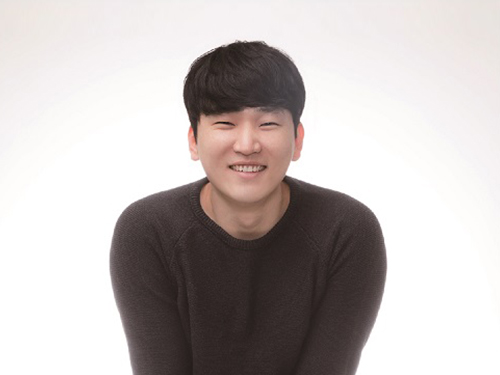 KAIST Ph.D. Candidate Wins the Next Generation of Engineers Award
Joo-Sung Kim, a doctoral student at the EEWS (Environment, Energy, Water and Sustainability) Graduate School won the inaugural Next Generation of Engineers Award in Leadership on December 14, 2016.
The National Academy of Engineering of Korea hosts this award to support creative and ambitious students who have the potential to become leaders in engineering and who will serve as role models for future Korean engineers. Based on the recommendations of university professors in engineering and members of the academy, seven students are selected for the award in the categories of leadership and entrepreneurship.
With his research focus on the development of high-performance, next-generation secondary cells for wearable devices such as smart watches, health bands, and smart eyewear, Joo-Sung created a startup, Lithium-ion Battery Energy Science and Technology (LiBEST), Inc. He plans to base his company at the Office of University and Industry Cooperation, KAIST, where he can receive assistance for launching the mass-production system for his technology.
His adviser, Professor Jang-Wook Choi of the EEWS Graduate School, noted, “Joo-Sung has been a great student who has a strong sense of curiosity and perseverance. The award is the by-product of his hard work.”
“I have always enjoyed my work and study as a researcher, but eventually would like to expand my career into business based on the results of my research. It would be wonderful if I could become a businessman like Elon Musk, Masayoshi Son, or Ma Yun and create a role model for aspiring engineers in Korea by combining science and technology with business demand to create social values that benefit many people,” Joo-Young said.
2016.12.26 View 12121
KAIST Ph.D. Candidate Wins the Next Generation of Engineers Award
Joo-Sung Kim, a doctoral student at the EEWS (Environment, Energy, Water and Sustainability) Graduate School won the inaugural Next Generation of Engineers Award in Leadership on December 14, 2016.
The National Academy of Engineering of Korea hosts this award to support creative and ambitious students who have the potential to become leaders in engineering and who will serve as role models for future Korean engineers. Based on the recommendations of university professors in engineering and members of the academy, seven students are selected for the award in the categories of leadership and entrepreneurship.
With his research focus on the development of high-performance, next-generation secondary cells for wearable devices such as smart watches, health bands, and smart eyewear, Joo-Sung created a startup, Lithium-ion Battery Energy Science and Technology (LiBEST), Inc. He plans to base his company at the Office of University and Industry Cooperation, KAIST, where he can receive assistance for launching the mass-production system for his technology.
His adviser, Professor Jang-Wook Choi of the EEWS Graduate School, noted, “Joo-Sung has been a great student who has a strong sense of curiosity and perseverance. The award is the by-product of his hard work.”
“I have always enjoyed my work and study as a researcher, but eventually would like to expand my career into business based on the results of my research. It would be wonderful if I could become a businessman like Elon Musk, Masayoshi Son, or Ma Yun and create a role model for aspiring engineers in Korea by combining science and technology with business demand to create social values that benefit many people,” Joo-Young said.
2016.12.26 View 12121 -
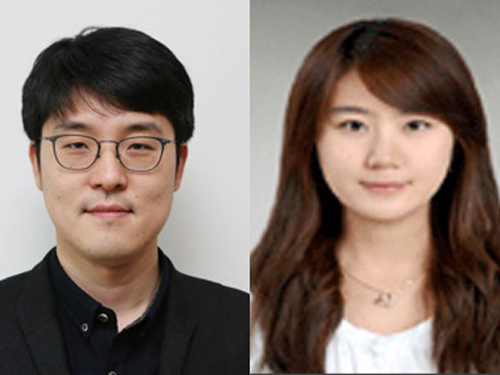 EEWS Graduate School Team Receives the S-Oil Best Paper Award
Professor Hyungjun Kim and Dr. He-Young Shin from the EEWS (Energy, Environment, Water and Sustainability) Graduate School at KAIST received the Best Paper Award in Chemistry from S-Oil, a Korean petroleum and refinery company, on November 29, 2016.
Established in 2011, the S-Oil Best Paper Awards are bestowed annually upon ten young scientists in the fields of five basic sciences: mathematics, physics, chemistry, biology, and earth science. The scientists are selected at the recommendation of the Korean Academy of Science and Technology and the Association of Korean Universities. The awards grant a total of USD 230,000 for research funding.
Dr. Shin, the lead author of the awarded research paper, said, “My research interest has been catalyst studies based on theoretical chemistry. I am pleased to accept this award that will support my studies, and will continue to research catalyst design that can predict parameters and integrate them into catalytic systems.”
Professor Hyungjun Kim (left) and Dr. He-Young Shin (right)
2016.12.23 View 12044
EEWS Graduate School Team Receives the S-Oil Best Paper Award
Professor Hyungjun Kim and Dr. He-Young Shin from the EEWS (Energy, Environment, Water and Sustainability) Graduate School at KAIST received the Best Paper Award in Chemistry from S-Oil, a Korean petroleum and refinery company, on November 29, 2016.
Established in 2011, the S-Oil Best Paper Awards are bestowed annually upon ten young scientists in the fields of five basic sciences: mathematics, physics, chemistry, biology, and earth science. The scientists are selected at the recommendation of the Korean Academy of Science and Technology and the Association of Korean Universities. The awards grant a total of USD 230,000 for research funding.
Dr. Shin, the lead author of the awarded research paper, said, “My research interest has been catalyst studies based on theoretical chemistry. I am pleased to accept this award that will support my studies, and will continue to research catalyst design that can predict parameters and integrate them into catalytic systems.”
Professor Hyungjun Kim (left) and Dr. He-Young Shin (right)
2016.12.23 View 12044 -
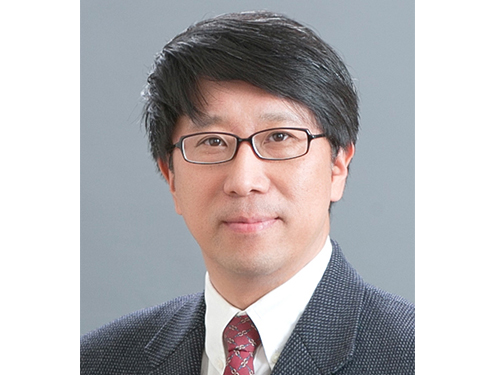 Professor Dongman Lee Wins the 2016 Korea Internet Award
Professor Dongman Lee of KAIST’s School of Computing received the 11th Korea Internet Award in the category of personal achievement on December 13 at the Creative Economy and Innovation Center in Gyeonggi province.
Hosted by the Ministry of Science, ICT and Future Planning of Korea, the Internet Award recognizes leaders in the Internet industry and their contributions.
Since 2010, Professor Lee has conducted research on the Internet of Things (IoT) platforms, resulting in the publication of five research papers in Science Citation Index (SCI) journals, ten papers in Korean journals, 30 best papers nominations at international conferences, and the registration of eleven patents. He has also worked on the creation of an IoT ecosystem through his research on object interworking platforms that can provide diverse user-customized services in the IoT environment.
His research team built a test bed for applicable IoT platforms on the 8th floor of the IT Convergence Center on campus to implement experiments and collect various data, thereby creating a foundation to carry out research projects in this field.
Professor Lee has helped the advancement of an Internet governance system in Korea by researching Internet governance policies, holding important posts in related academic societies including the Chairman of the Korea Internet Governance Alliance (KIGA) Council, and hosting major conferences such as the Asia Pacific Regional Internet Governance Forum (APrIGF).
2016.12.20 View 9773
Professor Dongman Lee Wins the 2016 Korea Internet Award
Professor Dongman Lee of KAIST’s School of Computing received the 11th Korea Internet Award in the category of personal achievement on December 13 at the Creative Economy and Innovation Center in Gyeonggi province.
Hosted by the Ministry of Science, ICT and Future Planning of Korea, the Internet Award recognizes leaders in the Internet industry and their contributions.
Since 2010, Professor Lee has conducted research on the Internet of Things (IoT) platforms, resulting in the publication of five research papers in Science Citation Index (SCI) journals, ten papers in Korean journals, 30 best papers nominations at international conferences, and the registration of eleven patents. He has also worked on the creation of an IoT ecosystem through his research on object interworking platforms that can provide diverse user-customized services in the IoT environment.
His research team built a test bed for applicable IoT platforms on the 8th floor of the IT Convergence Center on campus to implement experiments and collect various data, thereby creating a foundation to carry out research projects in this field.
Professor Lee has helped the advancement of an Internet governance system in Korea by researching Internet governance policies, holding important posts in related academic societies including the Chairman of the Korea Internet Governance Alliance (KIGA) Council, and hosting major conferences such as the Asia Pacific Regional Internet Governance Forum (APrIGF).
2016.12.20 View 9773